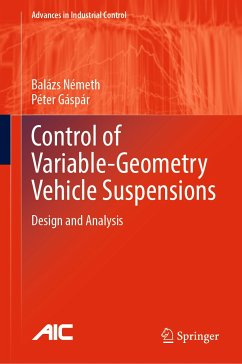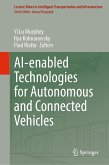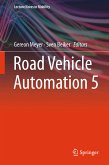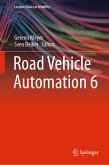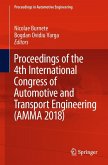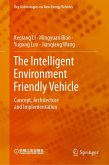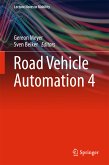This book provides a thorough and fresh treatment of the control of innovative variable-geometry vehicle suspension systems. A deep survey on the topic, which covers the varying types of existing variable-geometry suspension solutions, introduces the study. The book discusses three important aspects of the subject:
.robust control design;
.nonlinear system analysis; and
.integration of learning and control methods.
The importance of variable-geometry suspensions and the effectiveness of design methods implemented in the autonomous functionalities of electric vehicles-functionalities like independent steering and torque vectoring-are illustrated. The authors detail the theoretical background of modeling, control design, and analysis for each functionality. The theoretical results achieved through simulation examples and hardware-in-the-loop scenarios are confirmed. The book highlights emerging ideas of applying machine-learning-based methods in the control system with guarantees on safety performance. The authors propose novel control methods, based on the theory of robust linear parameter-varying systems, with examples for various suspension systems.
Academic researchers interested in automotive systems and their counterparts involved in industrial research and development will find much to interest them in the eleven chapters of Control of Variable-Geometry Vehicle Suspensions.
.robust control design;
.nonlinear system analysis; and
.integration of learning and control methods.
The importance of variable-geometry suspensions and the effectiveness of design methods implemented in the autonomous functionalities of electric vehicles-functionalities like independent steering and torque vectoring-are illustrated. The authors detail the theoretical background of modeling, control design, and analysis for each functionality. The theoretical results achieved through simulation examples and hardware-in-the-loop scenarios are confirmed. The book highlights emerging ideas of applying machine-learning-based methods in the control system with guarantees on safety performance. The authors propose novel control methods, based on the theory of robust linear parameter-varying systems, with examples for various suspension systems.
Academic researchers interested in automotive systems and their counterparts involved in industrial research and development will find much to interest them in the eleven chapters of Control of Variable-Geometry Vehicle Suspensions.
Dieser Download kann aus rechtlichen Gründen nur mit Rechnungsadresse in A, B, BG, CY, CZ, D, DK, EW, E, FIN, F, GR, HR, H, IRL, I, LT, L, LR, M, NL, PL, P, R, S, SLO, SK ausgeliefert werden.

